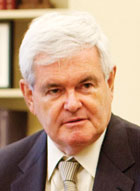Letters to the Editor
The real threat to Israel
“Why do some Jews distrust Obama?” The question is off the mark. It is not Obama who is a threat to Israel, it is we Jews ourselves.
In the JTA article published last week (“Obama assassination column raises question: Why do some Jews see Obama as so sinister?” Jan. 26), some of the individuals (unnamed, but speaking out) who made outrageous comments show how racist their remarks are, and how sophomoric they are when it comes to President Obama.
Yes, the fact is the president is a black man and “people” do not like this fact since history always has shown Negroes to be inferior. But when blacks became sports figures, musicians and others who make tremendous dollars for the majority (the elite few), blacks are more valued and have brought good economic sense in their wake. President Obama is held in contempt by those who fear something he may say or do. But it is not President Obama who is destroying Israel. Jews are responsible because they think this way.
Look how we are behaving. When one observes Jewish assimilation into mainstream Christian living, away from Jewish life — messianic Jews, conversions to other religions, non-practicing Jews and intermarriage — we find we are diminishing our numbers. Christians appear to love their god more than Jews love our G-d. Christian churches command large membership numbers and often have multiple services. In Kansas City where approximately 20,000 Jews live, only a few hundred attend our local synagogues each Shabbat. As Pogo would say, “…The enemy is us!”
It is a shame that Jews have allowed themselves to run away from their culture that has — and is still — changed the whole world since Egypt. It is so sad that they cannot see these facts. The United States needs to increase its number of Jews in communities who are knowledgeable and in love with their culture and literature (past and present), which garners much greater support for Israel and its importance.
So I repeat, President Barak Hussein Obama is not our problem. It. Is. Us.
Jesse Newman
Overland Park, Kan.
What do our youth know about Auschwitz?
Perhaps it is true that the only people who remember wars are the men who fought them and their children who remember their father’s sacrifices.
Some news is odd for what is says, some for where it came from. Printed in the Jan. 25 edition of Istanbul-based Hürriyet Daily News is this article:
“One in five young Germans unaware of Auschwitz: Poll”
“One in five young Germans has no idea that Auschwitz was a Nazi death camp, a poll released Wednesday [Jan. 25] showed, two days ahead of Holocaust Memorial Day.”
“Although 90 percent of those asked did know it was a concentration camp, the poll for Thursday’s edition of Stern news magazine revealed that Auschwitz meant nothing to 21 percent of 18- to 29-year-olds.”
“And nearly a third of the 1,002 people questioned last Thursday and Friday [Jan.19-20] for the poll were unaware that Auschwitz was in today’s Poland.”
“The poll comes ahead of the anniversary of the liberation of Auschwitz by Soviet troops on Jan.27, 1945, which Germany has marked since 1996 with official memorial ceremonies for Holocaust victims.”
“According to a report by independent experts commissioned by the German parliament and published earlier this week, about one in five Germans is latently anti-Semitic.”
The brief article cited in the Hürriyet Daily News appears in the Hamburg-based magazine, Der Stern (“The Star”), in German. It can be found at http://www.stern.de/news2/aktuell/jeder-fuenfte-juengere-deutsche-kennt-auschwitz-nicht-1778115.html
One wonders how today’s American youth and indeed those of other countries would fare if asked the same questions.
Scott Brown
Leawood, Kan.
Thank you all for coming!
I have been on Cloud Nine since last Sunday afternoon, Jan. 22, when we all gathered to watch the first of the “Matinees at the Heritage Center.” It’s hard to describe what it’s like to have an idea and to see that idea sprout into a happening. The fact that more than 100 people attended that first matinee made it the very best experience of my life.
During every Saturday morning service, we read about the commandments G-d asks us to keep, and over the past number of years I have read the one asking us to “Honor thy father and thy mother.” Every Saturday, I would think about a way to do that for my mother, of blessed memory for 56 years, and for my father, of blessed memory for 47 years. And since the day you all helped me to launch the “Circle for Yiddish Learning — the language and the culture” and now with the addition of the movies, I know my prayers have been answered.
May G-d bless you all.
Ray Davidson
Overland Park, Kan.



 By the time you read this, the Iowa caucus and its Republican winner will be old news. On the national scene, the record shows that both leading Republican presidential candidates, Mitt Romney and Newt Gingrich, appreciate Israel as an ally and both will be better for Israel than Barack Obama.
By the time you read this, the Iowa caucus and its Republican winner will be old news. On the national scene, the record shows that both leading Republican presidential candidates, Mitt Romney and Newt Gingrich, appreciate Israel as an ally and both will be better for Israel than Barack Obama. As a result, Al Qaeda and other Jihadists have strengthened their hold in chaotic Sinai and they and Hamas have been able to import advanced anti-tank and anti-aircraft rockets and missiles that were looted from civil war ravaged countries such as Libya and Yemen. Consequently, Hamas has amassed more than 10,000 rockets in its arsenal including some that can reach the outskirts of Tel Aviv and portable, shoulder fired, anti- aircraft missiles called Manpads which can shoot down a civilian passenger plane.
As a result, Al Qaeda and other Jihadists have strengthened their hold in chaotic Sinai and they and Hamas have been able to import advanced anti-tank and anti-aircraft rockets and missiles that were looted from civil war ravaged countries such as Libya and Yemen. Consequently, Hamas has amassed more than 10,000 rockets in its arsenal including some that can reach the outskirts of Tel Aviv and portable, shoulder fired, anti- aircraft missiles called Manpads which can shoot down a civilian passenger plane.